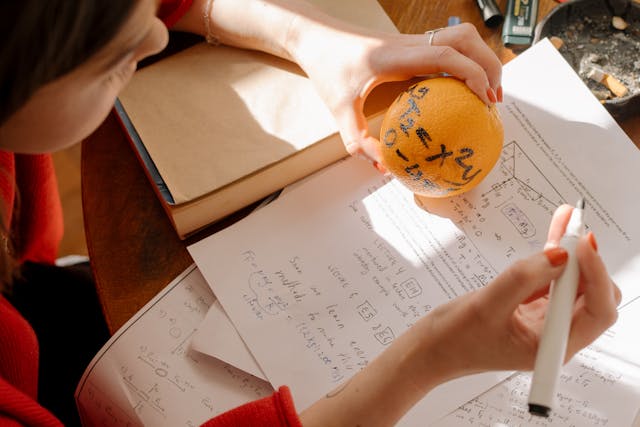Studying is something we all do, but not everyone does it effectively. Many students spend hours buried in books yet still struggle to recall key information during exams. The problem isn’t always about effort—it’s about strategy. Science tells us that certain techniques help the brain learn faster, remember longer, and recall more effectively. Let’s dive into the best study techniques that are proven by research.
Understanding How the Brain Learns
Our brain isn’t a sponge that soaks up information automatically. Learning involves attention, processing, and storage. When you understand how your brain encodes memories, you can study smarter. Attention acts like a filter; if you’re distracted, information won’t even make it to memory. Meanwhile, active engagement with content helps strengthen connections in the brain.
Active Learning Over Passive Learning
Have you ever highlighted half your textbook, only to forget everything later? That’s passive learning. It feels productive but doesn’t stick. Active learning, on the other hand, forces your brain to work—summarizing concepts, asking questions, teaching others. Research shows active engagement leads to better retention.
Spaced Repetition
Instead of cramming the night before, spread your study sessions over days or weeks. This technique is called spaced repetition, and it taps into the brain’s natural “forgetting curve.” By revisiting material at intervals, you strengthen memory each time. Tools like Anki or Quizlet automate this process, making it easier to manage.
Retrieval Practice
Reading notes again and again creates an illusion of knowledge. The real test is retrieval—forcing yourself to recall without looking. Practice with flashcards, quizzes, or even writing summaries from memory. This active recall strengthens pathways in your brain, making information easier to access later.
The Pomodoro Technique
Focus is hard, especially in a world full of notifications. The Pomodoro Technique offers a simple solution: study for 25 minutes, then take a 5-minute break. This cycle keeps your brain fresh and prevents burnout. Science shows short, focused bursts are more effective than marathon study sessions.
Interleaved Practice
Most students study by blocking—math today, history tomorrow. But research suggests mixing topics (interleaving) boosts learning. Why? It forces your brain to constantly shift gears, strengthening problem-solving skills and preventing autopilot learning.
Elaborative Interrogation
Want to make facts stick? Ask “why.” For example, instead of memorizing “plants need sunlight,” ask, “Why do plants need sunlight?” This questioning process connects new information to existing knowledge, making it more meaningful and memorable.
Dual Coding Method
The brain loves visuals. Combining words with images doubles your chances of recall. Use diagrams, flowcharts, or infographics to represent complex topics. For instance, pairing a timeline diagram with a history summary helps you remember dates and events better.
The Role of Sleep in Learning
Pulling all-nighters may feel heroic, but sleep is where the magic happens. During deep sleep, the brain consolidates memories, transferring them from short-term to long-term storage. Students who sleep well recall more than those who sacrifice rest.
Exercise and Brain Function
Ever noticed how a walk clears your head? That’s science at work. Exercise increases blood flow to the brain, improving focus and memory. Even short breaks with stretching or light movement during study sessions can re-energize your mind.
The Importance of Environment
Your environment shapes your focus. A noisy room with constant interruptions kills productivity. Choose a quiet, well-lit space, and remove distractions (yes, that means turning off unnecessary notifications). Some research also suggests varying locations can help memory by providing different context cues.
Note-Taking Techniques
Good notes aren’t just about writing fast; they’re about organizing information meaningfully.
Cornell Method: Split your page into cues, notes, and summary.
Mind Mapping: Create visual webs of connected ideas.
Choose what works for you, but make sure your notes encourage review and active recall.
Technology and Study Apps
Apps can be a blessing or a curse. Used wisely, they help organize, quiz, and track progress. Tools like Notion, Evernote, and Forest keep students productive. The key is to avoid falling into the trap of endless scrolling instead of actual studying.
Mindset and Motivation
A positive mindset matters as much as strategy. Carol Dweck’s research on growth mindset shows that believing intelligence can be developed leads to better learning outcomes. Instead of fearing failure, view mistakes as stepping stones. Remember, consistency beats intensity—studying a little every day works better than last-minute cramming.
Conclusion
Studying smarter, not harder, is the secret. Science-backed strategies like spaced repetition, retrieval practice, and active learning can transform the way you absorb knowledge. Combine these with healthy habits like sleep, exercise, and a growth mindset, and you’ll notice a dramatic improvement in your learning journey.
FAQs
- What is the most effective study technique?
Spaced repetition and retrieval practice are widely considered the most effective because they strengthen long-term memory. - How many hours should I study per day?
Quality matters more than quantity. Two to four hours of focused, active study often beats eight hours of passive reading. - Is multitasking good for studying?
No. Studies show multitasking reduces focus and memory retention. It’s better to work in distraction-free intervals. - Can music help while studying?
Instrumental or low-volume background music can help some learners, but lyrics and loud music may interfere with focus. - How can I stay motivated to study?
Set small, achievable goals, reward yourself, and remind yourself of the bigger picture—why you’re studying in the first place.
